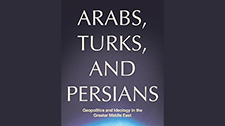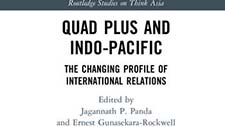-

From Domination to Co-Creation: How Taiwan Sustains Semiconductor Leadership through Adaptive Industrial Policy
Amid heightened geopolitical tensions, global supply chains are experiencing an unprecedented realignment. Semiconductors have emerged as a strategic asset, an industry where Taiwan has cemented global leadership. Its tech expertise, and robust democracy underpin Taiwan’s strategic value and reliability. While the EU has turned to large-scale subsidies to localize semiconductor production, Taiwan’s success is not the product of any single policy instrument, but reflects a long-term trajectory of institutional foresight, public-private synergy, and adaptive international engagement. As Taiwan’s experience shows, building lasting technological capacity requires more than subsidies. It is about crafting coherent ecosystems, where both state and market roles evolve in tandem. As like-minded partners, closer cooperation between Europe and Taiwan can strengthen mutual resilience. This issue brief by Zsuzsa Anna Ferenczy and Yingfen Lin examines how Taiwan’s model serves as a blueprint for building economic resilience and technological leadership in a hyper-connected world. Read and download the issue brief here.
-

Report: The Underrepresentation of Women in South Korean Politics – How to Empower Women’s Participation?
The Stockholm Korea Center of the Institute for Security and Development Policy and the Korea Young Leaders Forum held a one-hour webinar commemorating the International Day for Women, Peace, and Disarmament on May 23, 2025, during which the underrepresentation of women in South Korean politics was discussed. Dr. Hannah June Kim, Associate Professor at the Graduate School of International Studies (GSIS) at Sogang University, and Ms. Yena Lee, International Division Manager at the Korea Young Leaders Forum, were our two speakers, with ISDP’s Ms. Josephine Ørgaard Rasmussen, Korea Center project manager, serving as the moderator. The webinar’s objective was to investigate the causes for the low level of female participation in South Korean politics and to debate potential policy recommendations for empowering South Korean women to pursue careers in politics in the future. This report summarizes the main takeaways obtained from the webinar in order to pinpoint some of the underlying factors of the underrepresentation of women in South Korean politics and contains concrete policy recommendations for empowering women to pursue political careers in the future. There is a Korean version accessible after the English version.
-

G7 Strategy for Countering Russian Information Operations in the Indo-Pacific Region: A Framework for Enhanced Multilateral Coordination and Response
Niklas Swanström and Toby J. Logan write that the Russian Foreign Information Manipulation and Interference (FIMI) operations across the Indo-Pacific have evolved into sophisticated, multi-domain campaigns that systematically exploit political tensions and technological innovations. They argue that these operations demonstrate added complexity through strategic partnerships with China and North Korea, coordination with regional proxy networks, and alignment with right-wing nationalist movements spanning from Belgium to Japan. This expanded operational architecture enables Moscow to project influence across diverse political and cultural contexts, posing significant challenges to democratic institutions and the rules-based international order that the Group of Seven (G7) seeks to preserve, write Swanström and Logan. They further argue that this strategic framework provides G7 leaders with actionable recommendations to enhance collective capabilities for identifying, countering, and bolstering resilience against Russian FIMI operations in the Indo-Pacific. Read and download this policy brief here.
-

Alleged Miscommunication About Five Eyes Should Prompt a Conversation About One Country’s Membership
This piece by Caroline O’Neill reviews the uncertainty in the Five-Eyes alliance network arising out of the recent unpredictable approach of the United States. She writes that in February, The Financial Times reported that senior White House official Peter Navarro called for Canada to be removed from the Five Eyes intelligence network. Navarro has denied the allegations, telling The Financial Times, “We would never ever jeopardise our national security . . . with allies like Canada.” His use of the word allies, especially about Canada, is curious given that the administration he works for has repeatedly used rhetoric suggesting Canada should become America’s 51st state. U.S. President Donald Trump made the call through his brand of social media diplomacy, using his platform Truth Social to refer to Canada’s then-prime minister as the future governor of the state of Canada. Reports suggest the Canadian government views this to be more than just presidential bluster, creating a heavy doubt and uncertainty about the future of the five-eyes alliance framework. Read this piece here.
-

Politics in the Courtroom: Lawfare and Impeachment in South Korea’s Post-Martial Law Era
Synne Norseth writes on the need for urgent legal and political reform in South Korea. She argues that while political-judicial tension is not unique to Korea, its current intensity underscores the urgent need for reform. Ambiguities in legal statutes have fostered confusion and inconsistent rulings, making the impeachment process vulnerable to political misuse. To maintain its function as a tool of public accountability, impeachment should be based on clear and objective standards, specifically limited to significant constitutional violations or severe misconduct, writes Synne Norseth. She further argues that political actors should refrain from court-packing and undue pressure on judges, instead prioritizing protections for judicial independence. Any structural reform to the judiciary should be pursued through bipartisan consensus or independent review to ensure the preservation of institutional integrity and the maintenance of democratic balance, writes Norseth. Read this piece here.
-

Is Central Asia Stable? Conflict Risks and Drivers of Instability
In this Silk Road paper, Svante E. Cornell analyses a series of potential factors that impact the risk of renewed instability in Central Asia. He argues that internal to the region, these include the economic difficulties the region has experienced in the past decade. In addition, the remarkable resistance to reform that post-Soviet institutions in the region have shown in the past three decades has become increasingly unsustainable in the face of new communication technologies and an emerging post-Soviet generation. Among state institutions, the region’s security services can be identified as the most unreformed and retrograde power centers, and they played influential roles in most of the episodes of violence in the region. Cornell further writes that aggravating these risk factors are the growing disparity between states of the region and the continued malign role of Russian influence, whose array of instruments to undermine stability have only intermittently been deployed across Central Asia. Read and download this Silk Road paper here.
Latest Publications
Report: The Underrepresentation of Women in South Korean Politics – How to Empower Women’s Participation?
Contextual Background The Stockholm Korea Center of the Institute for Security and Development Policy and the Korea Young Leaders Forum held a one-hour webinar commemorating the International Day for Women, […]
G7 Strategy for Countering Russian Information Operations in the Indo-Pacific Region: A Framework for Enhanced Multilateral Coordination and Response
Russian Foreign Information Manipulation and Interference (FIMI) operations across the Indo-Pacific have evolved into sophisticated, multi-domain campaigns that systematically exploit political tensions and technological innovations. These operations demonstrate added complexity […]
Is Central Asia Stable? Conflict Risks and Drivers of Instability
In 2022, violence erupted in four different areas of Central Asia. These episodes of violence were very different from each other, and all were contained within days or weeks. The […]
- From Foe to Partner? Russia's Rapprochement with the Taliban and its Regional Implications
- Mongolia’s Pivot to Central Asia and the Caucasus: Strategic Realignments and Regional Implications
- Has the West "Lost" Azerbaijan?
- Kyrgyzstan and Tajikistan Resolve Final Border Dispute: A Historic but Fragile Peace






